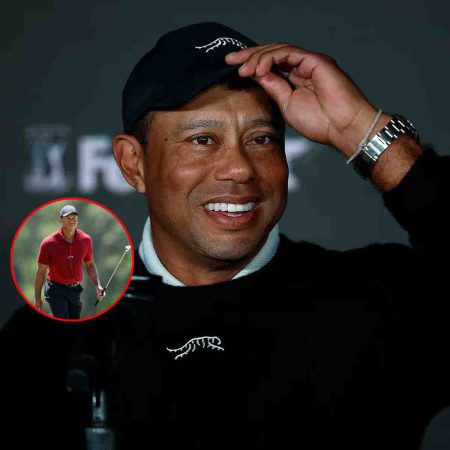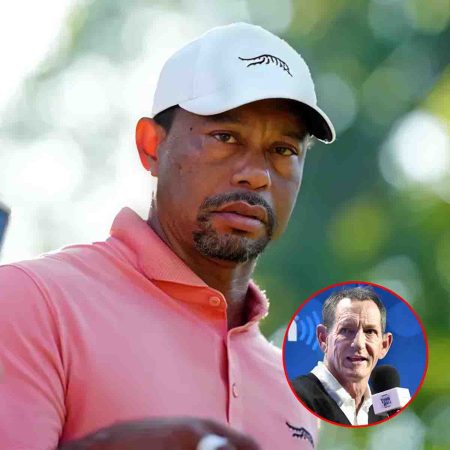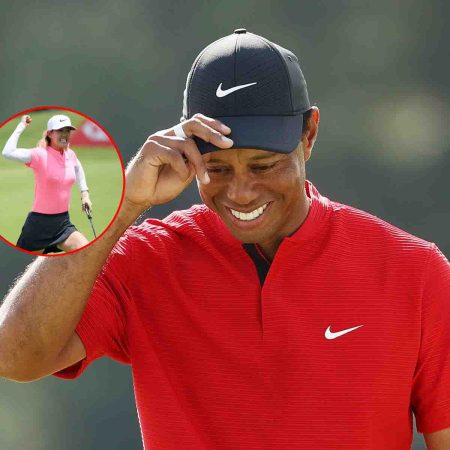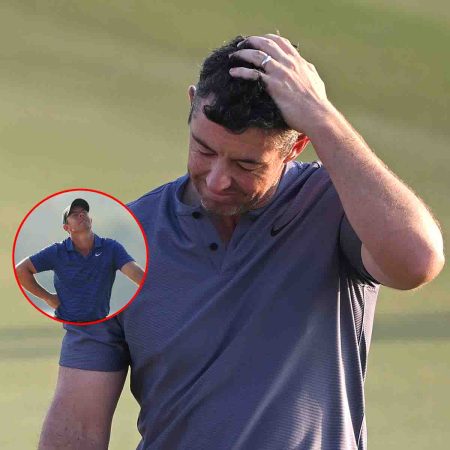Emmitt Smith is a three-time Super Bowl champ, a six-time All-Pro, and an eight-time Pro Bowler. He led the league in rushing four different seasons, led in rushing touchdowns three times, was Offensive Rookie of the Year, was a Super Bowl MVP, and is in the Pro Football Hall of Fame. And he owns the most consequential record in the sport as the NFL’s all-time rushing king.
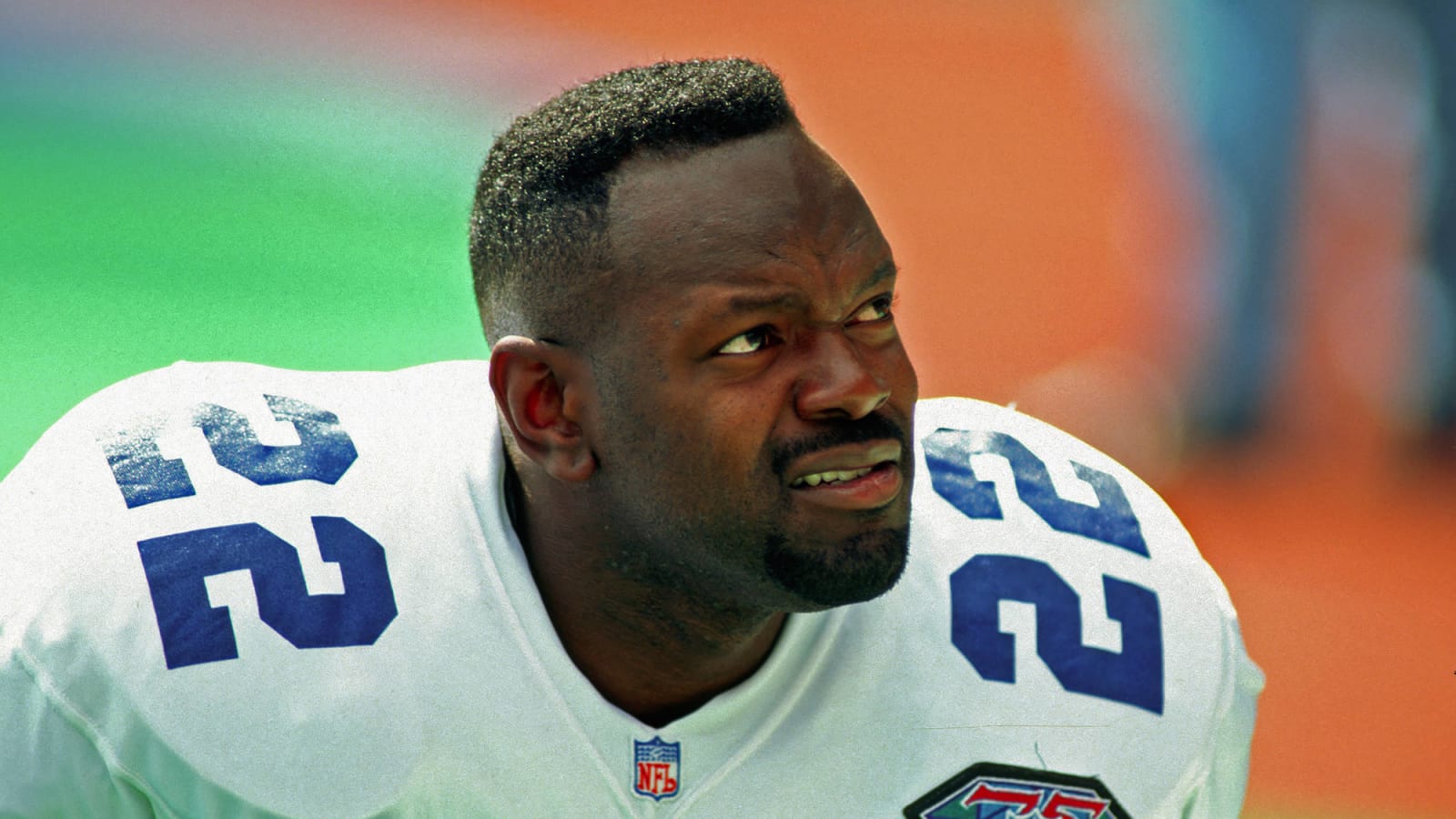
Smith is one of the most decorated players in Cowboys history… yet he very nearly achieved many of those career milestones wearing a Miami Dolphins uniform.

Smith, now 53, sat down with Channing Crowder, Ryan Clark, and Fred Taylor on a recent episode of The Pivot Podcast. And as he set the story straight about his infamous two-game absence to start the 1993 season, he also revealed how close he came to leaving Dallas after just his third season as a pro.
The Cowboys had just won Super Bowl XXVII, convincingly beating the Buffalo Bills 52-17, to complete a remarkable turnaround: from the worst team in football to world champions in four years.
Smith had been a key component. The first-round draft pick out of Florida won Offensive Rookie of the Year honors in 1990, and then led the league in rushing in 1991. He led the NFL in rushing yards as well as rushing touchdowns the next year, en route to the Cowboys hoisting the Lombardi Trophy in Pasadena.
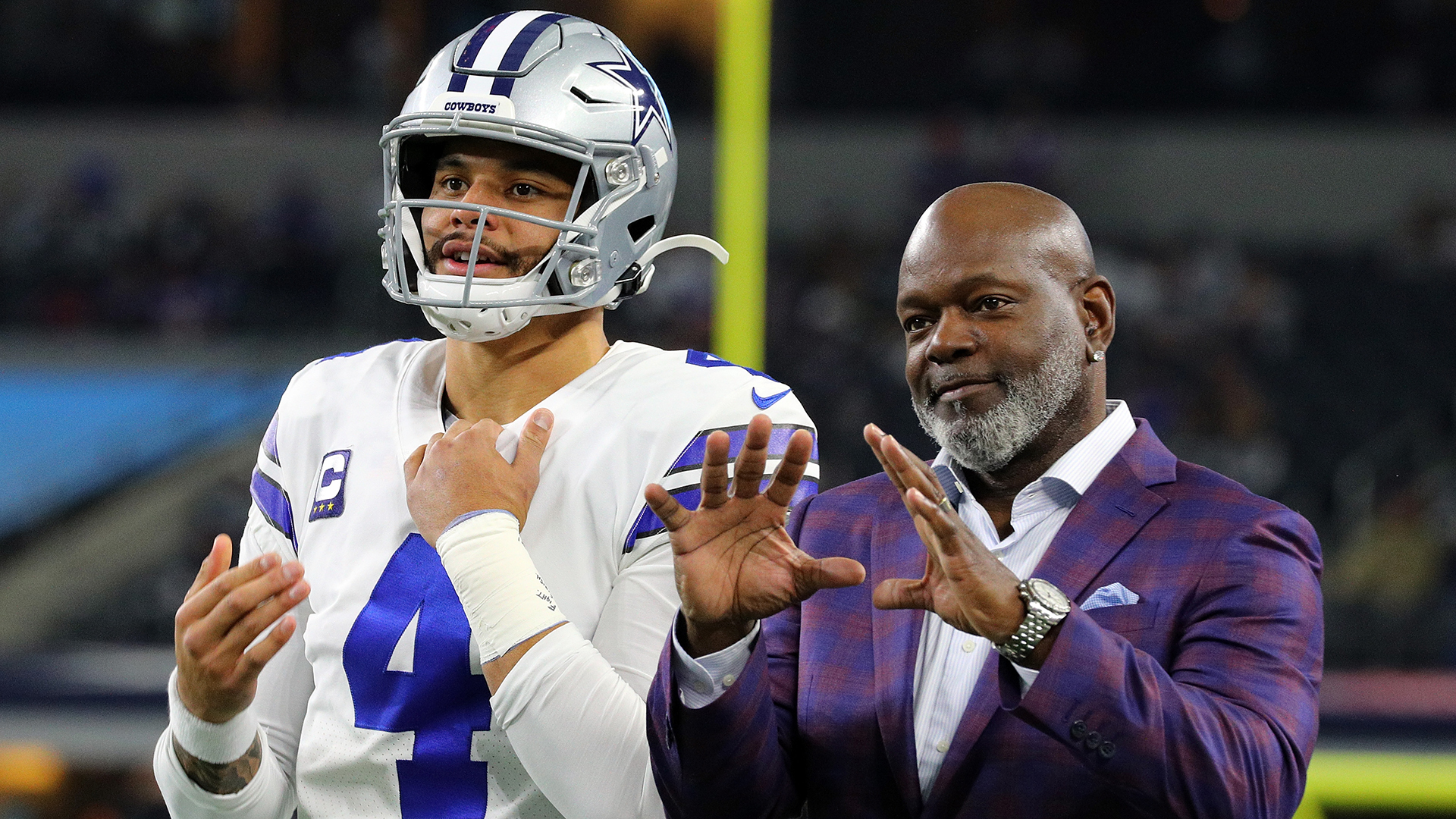
But when 1993’s training camp rolled around, Smith was nowhere to be found. And the defending Super Bowl champs started the regular season with a fourth-round rookie named Derrick Lassic in the backfield.
The popularly-held version of the story is that Smith was holding out for a bigger paycheck from the Dallas front office, but Smith was quick to clarify what really happened.
“I didn’t hold out,” Smith corrected. “Holding out is when you have a contract, and you want more money. My contract was over. I had fulfilled my obligations.”
Smith went on to explain how his original four-year rookie contract had reverted to a three-year deal in his very first season. When the three years expired with that Super Bowl rout, Smith says he became a restricted free agent. As such, any other team could have made him an offer that the Cowboys would have had the opportunity to match.
Shockingly, the rushing champ for two years running says he didn’t receive a single offer.
“I get into restricted free agency,” he recalled, “I’ve got 30 days to negotiate with 20-some-odd teams to come play with them. And not one gave me an offer.”
So, Smith says, he took matters into his own hands.
“I picked up the phone and called Don Shula myself and told him I wanted to come to Miami and play for Miami. Because I knew Dan Marino didn’t have a running game. And I said, ‘I want to come help you, help Dan, whatever, get a championship. Bring me back to the state of Florida.’ He said, ‘Well, I don’t know if I can make that offer, because if I do make this offer and you don’t come, all my other players will see what I put on the table for you, and it’s going to mess up my chemistry.’ I said, ‘Just put something on the table that Jerry [Jones] says, “I cannot match it.”‘ He said, ‘I can’t do that.’”
Smith shared how he watched the Cowboys’ first two games of the 1993 season with his parents in Pensacola.

“It was killing me at home,” he said.
After starting the season 0-2 with losses to Washington and Buffalo, it was obvious to the Cowboys that they needed Smith back on the payroll.
“And then my phone started ringing,” he laughed.
Smith was on a plane shortly thereafter, and then at the bargaining table with the Joneses. Dallas gave Smith a new contract that made him the highest-paid running back in the NFL at the time.
But the narrative that has persisted for all these years, Smith says, instead paints him as the bad guy.
“That’s how the media twists it,” he continued. “The media twisted it as if I was holding out, and people think that I held out. No, I was negotiating. It’s a different term than ‘holdout.’ ‘Holdout’ seems like I withheld myself and my services that were already obligated. But I had fulfilled my deal. I didn’t have no more to do, except for get a new contract.”
Smith was back in the lineup for Week 3. The Cowboys won their next seven games and eventually finished the year 12-4. Smith still ended the season with 1,486 rushing yards to lead the league for a third consecutive year. The regular-season finale against New York saw Smith famously dislocate his shoulder but play on to help Dallas win the division. The Cowboys went on to win Super Bowl XXVIII; Smith was named the Super Bowl MVP and the league MVP.



